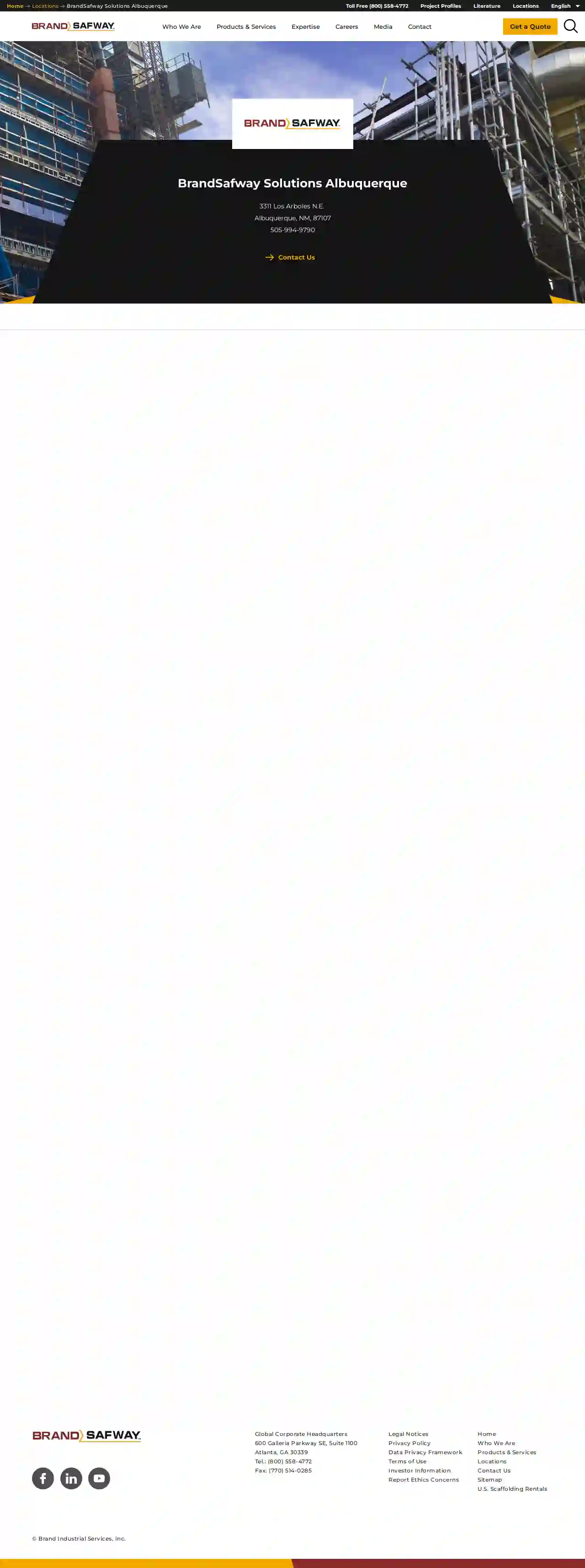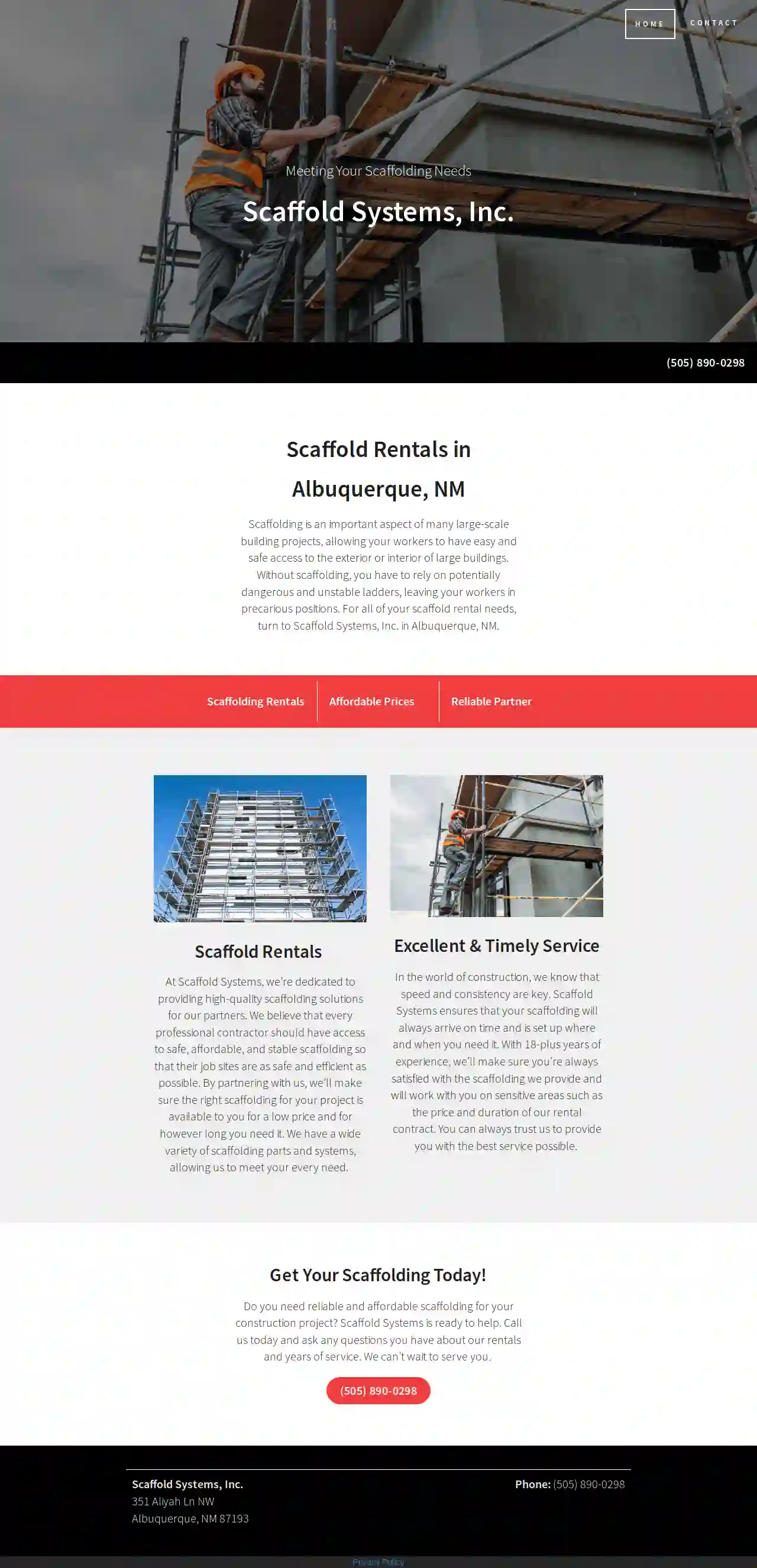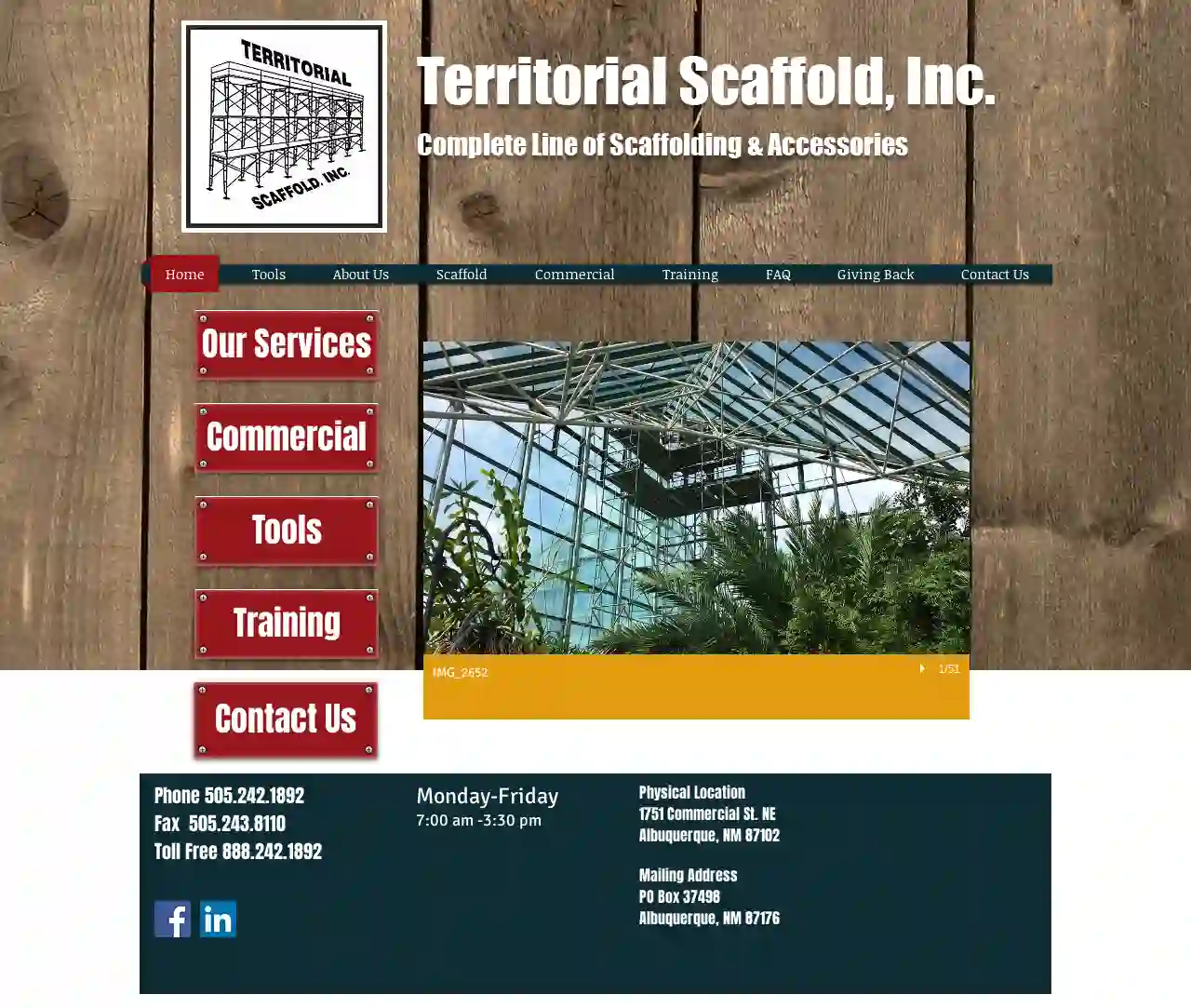Scaffolding Companies Sunland Park
Find Scaffolding Experts in Sunland Park
Get multiple Scaffolding Solutions quotes for your project today! Compare profiles, reviews, accreditations, portfolio, etc... and choose the best deal.

BrandSafway Solutions Albuquerque
4.18 reviews1234 BrandSafway Blvd, Albuquerque, 87102, USBrandSafway is a leading provider of access solutions, including scaffolding, aerial work platforms, and forming and shoring equipment. With a strong commitment to safety, quality, and customer satisfaction, BrandSafway offers a wide range of services tailored to meet the unique needs of clients across various industries. Their team of experienced professionals works closely with clients to understand their requirements and deliver customized solutions that enhance efficiency and productivity. BrandSafway's mission is to provide innovative access solutions that ensure safe and efficient project execution, while maintaining a focus on sustainability and environmental responsibility.
- Services
- Why Us?
- Accreditations
- Our Team
- Testimonials
Get Quote
Scaffold Systems Inc
36 reviews351 Aliyah Ln NW, Albuquerque, 87193, USScaffold Systems, Inc. is a dedicated provider of affordable and convenient scaffolding rentals to contractors and homeowners in Albuquerque, NM. With nearly two decades of experience, they offer a wide variety of scaffolding parts and systems to meet every need. Their commitment to safety, efficiency, and customer satisfaction sets them apart as a reliable partner for construction projects.
- Services
- Why Us?
- Gallery
Get Quote
Territorial Scaffold Inc
4.725 reviewsTerritorial Scaffold, Inc., Albuquerque, NM, 1751 Commercial St. NE, 87102, USTerritorial Scaffold, Inc. is a leading provider of scaffolding and accessories, offering a comprehensive range of services including commercial scaffolding, training, and more. With a strong commitment to quality and customer satisfaction, the company operates from its physical location at 1751 Commercial St. NE, Albuquerque, NM 87102, and can be contacted via phone at 505.242.1892, fax at 505.243.8110, or toll-free at 888.242.1892. The business is open Monday through Friday from 7:00 am to 3:30 pm.
- Services
- Why Us?
- Accreditations
- Our Team
- Testimonials
- Gallery
Get Quote- Al
All American Scaffold & Shoring
11 reviewsAlbuquerque, US- Services
- Why Us?
Get Quote
Over 2,353+ Scaffolding Contractors in our network
Our scaffolding companies operate in Sunland Park and surroundings!
ScaffoldingHQ has curated and vetted Top Scaffolding Businesses in Sunland Park. Find the most reliable business today.
Frequently Asked Questions About Scaffolding Companies
- Size and Complexity: Larger, more intricate scaffolding structures will naturally take longer to assemble.
- Scaffolding Type: System scaffolding, with its pre-engineered components, can be erected faster than traditional tube and clamp scaffolding.
- Accessibility: Difficult site access or limited working space can prolong the erection process.
- Crew Size and Experience: The number and skill level of the scaffolding erectors will impact the speed of assembly.
- Workers: Consider the number of workers on the scaffolding at any given time.
- Materials: Include the weight of building materials, tools, and equipment being used on the platform.
- Environmental Factors: Factor in potential loads from wind or snow, especially for taller scaffolding structures.
- Licensing and Insurance: Verify their licenses are current and that they have adequate insurance coverage.
- Experience: Choose a company with a history of successfully completing similar projects. Ask for references and check their portfolio.
- Safety Record: Inquire about their safety practices and accident history. A strong safety culture is essential.
- Professionalism: Observe their communication, responsiveness, and attention to detail. A reputable company will be organized and transparent.
- Reviews and Testimonials: Read online reviews and feedback from previous clients to assess their reputation.
- Industry Affiliations: Membership in professional organizations like the NASC (National Access & Scaffolding Confederation) indicates a commitment to industry standards.
- Mobile Elevated Work Platforms (MEWPs): Scissor lifts, boom lifts, and other MEWPs offer flexible access for specific tasks.
- Mast Climbing Work Platforms (MCWPs): Ideal for high-rise construction, providing a stable working platform that can be raised incrementally.
- Suspended Access Equipment: Ropes and harnesses used for specific tasks like window cleaning or façade repairs.
- Ladders and Step Ladders: For shorter durations and limited working heights, provided they are used safely and appropriately.
How long does it take to erect scaffolding?
What is the weight limit for scaffolding?
How do I know if a scaffolding company is reputable?
What are some alternatives to traditional scaffolding?
How long does it take to erect scaffolding?
- Size and Complexity: Larger, more intricate scaffolding structures will naturally take longer to assemble.
- Scaffolding Type: System scaffolding, with its pre-engineered components, can be erected faster than traditional tube and clamp scaffolding.
- Accessibility: Difficult site access or limited working space can prolong the erection process.
- Crew Size and Experience: The number and skill level of the scaffolding erectors will impact the speed of assembly.
What is the weight limit for scaffolding?
- Workers: Consider the number of workers on the scaffolding at any given time.
- Materials: Include the weight of building materials, tools, and equipment being used on the platform.
- Environmental Factors: Factor in potential loads from wind or snow, especially for taller scaffolding structures.
How do I know if a scaffolding company is reputable?
- Licensing and Insurance: Verify their licenses are current and that they have adequate insurance coverage.
- Experience: Choose a company with a history of successfully completing similar projects. Ask for references and check their portfolio.
- Safety Record: Inquire about their safety practices and accident history. A strong safety culture is essential.
- Professionalism: Observe their communication, responsiveness, and attention to detail. A reputable company will be organized and transparent.
- Reviews and Testimonials: Read online reviews and feedback from previous clients to assess their reputation.
- Industry Affiliations: Membership in professional organizations like the NASC (National Access & Scaffolding Confederation) indicates a commitment to industry standards.
What are some alternatives to traditional scaffolding?
- Mobile Elevated Work Platforms (MEWPs): Scissor lifts, boom lifts, and other MEWPs offer flexible access for specific tasks.
- Mast Climbing Work Platforms (MCWPs): Ideal for high-rise construction, providing a stable working platform that can be raised incrementally.
- Suspended Access Equipment: Ropes and harnesses used for specific tasks like window cleaning or façade repairs.
- Ladders and Step Ladders: For shorter durations and limited working heights, provided they are used safely and appropriately.